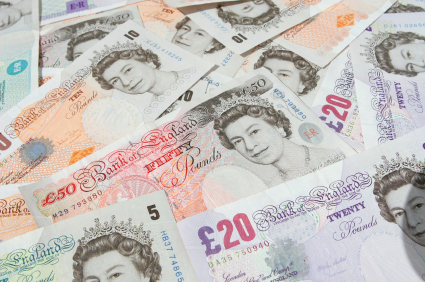Air passengers taxed over £27 billion in inflation busting 20 years of APD
October 31st, 2014
Industry Campaign renews call for urgent review and reduction of ‘damaging’ tax ahead of 2015
This Saturday, 1 November, marks 20 years since Air Passenger Duty (APD) was first levied on passengers flying from UK airports, and the A Fair Tax on Flying campaign today reveals the Government’s staggering £27.035 billion tax take over this period.
This figure comes amidst new research that a family of four taking one holiday a year in Europe, with an occasional trip to a longer haul destination such as the US every fifth year, would have paid an inflation-busting £1,244 in the life of this punishing tax.
APD was introduced by then Chancellor of the Exchequer, Kenneth Clarke, in the 1993 Budget, and it was levied from the following November at £5 for flights within the EEA and £10 elsewhere. The tax (which is paid by nearly all passengers flying from UK airports) has since risen dramatically, at around four times the rate of inflation over the same period for short haul and at a whopping twenty times the rate of inflation for long haul – and now APD is the highest tax of its kind anywhere in the world.
Presenting a ‘nice little earner’ for successive Governments since 1994, it is predicted that APD will bring in around £3.2billion in 2014/2015 – putting it firmly amongst the top yielding stealth taxes, despite recent positive reforms to the tax on long haul flights.
The A Fair Tax on Flying campaign is renewing its calls for the Government to undertake an urgent review and reduction of the duty ahead of next year’s General Election.
- Damaging for business and the UK economy – a more competitive APD rate would help the UK win global race, say industry leaders
Industry leaders in business, tourism, and aviation who make up the campaign have argued that APD makes goods and services more expensive, while discouraging investment, inbound tourism, and growth, all the while leaving the UK less competitive.
- Hits consumers hard – APD defies Government’s own ‘family test’
As well pushing up the cost of business travel through the UK, APD also makes foreign travel less affordable for holidaymakers, especially for families, who receive no tax ‘break’ on children’s flights, as for other goods and services.
An estimated £1 billion of last year’s £3 billion APD coffers were raised by leisure travellers. With a family of four now paying on average £52 in taxes for short-haul flights and £276 on long-haul flights to a favourite destination such as Florida, or £340 to destinations such as Jamaica, India and Pakistan which are important for diaspora communities visiting friends and relatives, the campaign is arguing that the tax is out of step with the Government’s own family test.
Consumers agree – with research by ABTA in summer 2014 showing that 4 in 10 consumers now say high levels of APD have put them off flying, while 3 in 10 would consider flying from other airports outside the UK to avoid the tax.
- UK is out of step – other countries are reducing or reforming the tax whilst ours creeps up
Out of 28 EU countries, only four others levy some form of air passenger tax. Critically, those flying from UK airports pay as much as 5 times the amount in departure duties than if they flew from competing airports in Germany, France, Italy and Austria.
Belgium, Denmark, Holland, Malta, and Norway have all scrapped their APD equivalent taxes in recent years, and Germany has frozen theirs. And so the campaign is calling on the UK to bring the policy in line with our neighbours and competitors in Europe.
- Twenty years on, ‘A Fair Tax on Flying’ campaigners say urgent review and reduction should be a priority
Mark Tanzer, Chief Executive of ABTA – the Travel Association, said: “After 20 years, APD seems to have become entrenched in the revenue-raising arsenal of the Treasury, yet it fails to meet so many of the Government’s own aims, both to support families and build our economy. For the sake of vital jobs, growth and the very valuable investment families make into visiting friends and relatives, a serious look at reforming and reducing this unpopular and harmful tax is now needed more than ever.”
Darren Caplan, Chief Executive of the Airport Operators Association, said: “Two decades is a long time for such an eye-wateringly high and regressive tax to be in place, and the huge Treasury revenues revealed today give a clear indication of why the Government is reticent of challenging the status quo. We believe this is short sighted: air passenger taxes, like APD, are proven to harm national economies, and the Government now needs to get us in step with our competitors, to boost jobs, growth and UK connectivity.”
Dale Keller, Chief Executive of BAR-UK, said: “We are confident that a Treasury led review of APD would confirm the damage being done to our economy and the UK’s global competitiveness. We believe that an urgent re-examination will reveal the very real opportunity to raise more revenues in the longer term through stimulating the economy. In light of 20 years that the duty has grown disproportionately and inhibited growth, we urge the Chancellor to do more to support business and ordinary consumers and reform the tax.”
Nathan Stower, Chief Executive of BATA, said: “It is a scandal that an island trading nation like the UK still has the world’s highest tax on flying despite recent positive changes to long-haul rates. Few countries have followed the UK’s example in taxing air passengers and policymakers should stop and consider why. Countries such as the Netherlands and Ireland have abolished their equivalent taxes having recognised their damaging economic impact.”
ENDS


